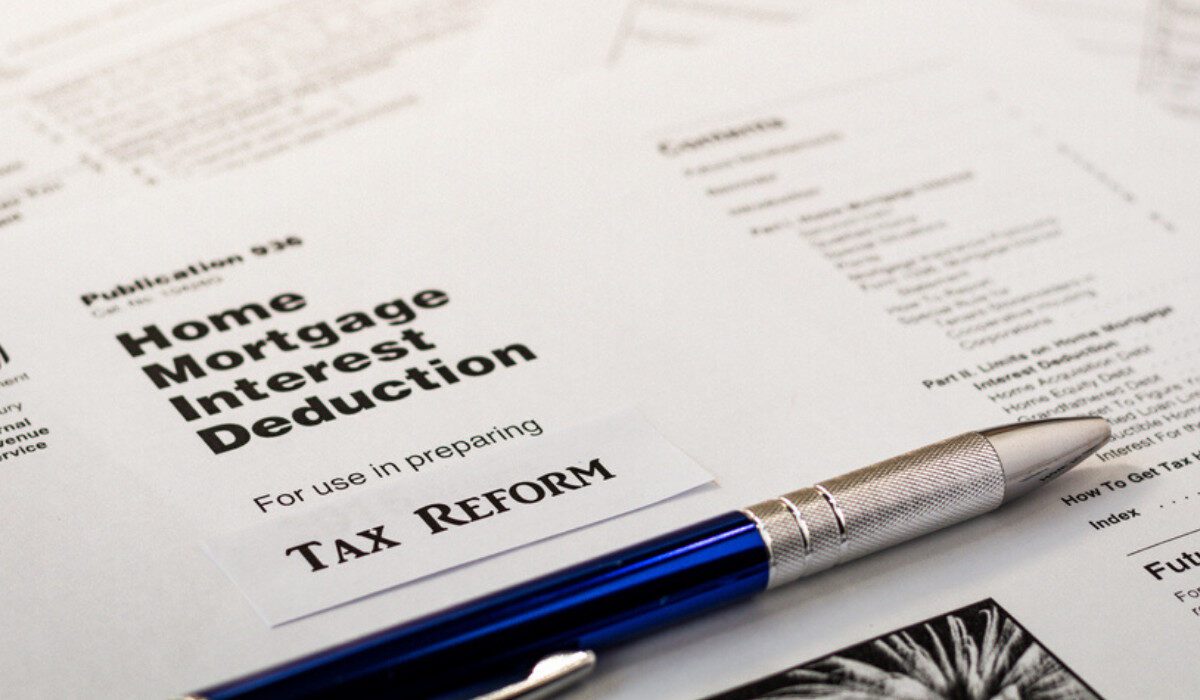Mortgage Interest Tax Deductible – Mortgage interest tax deductible is a bit of a tricky topic. While there are definitely some benefits to homeowners, there are also a lot of drawbacks.
The bottom line is that the US government doesn’t allow it as a standard deduction. Instead, they’re only willing to allow you to deduct up to $1,000. This is a significant amount.
However, if you’re married and filing jointly, that can reduce your tax bill by $2,400. If you’re single and filing separately, it can cut your taxes by $1,200.
That said, if you’re considering investing in a home, it might be worth it. You’ll want to consider the pros and cons before making a final decision.
One of the biggest tax deductions available is mortgage interest. This means you can reduce the amount of taxable income you have to pay.
The benefit of being able to deduct your mortgage interest is that it lowers the amount of taxes you owe. In fact, the IRS allows you to deduct the interest on up to $1 million of debt.
Well, when you own a home, the IRS allows you to deduct the interest paid on your home. So if you’ve owned a home for the last two years, the IRS automatically considers your home to be your second home.
It’s important to note that the IRS only allows you to deduct interest paid on your primary residence. So if you own more than one home, you’ll have to determine which home is your primary residence.

How can I claim TDMI?
I’m sure that we can all agree that interest is a drag. Whether you’re talking about student loans, credit cards or mortgage interest, it just feels like a big, expensive tax.
As someone who has been in debt his entire adult life, I can tell you first hand that it is definitely worth it to pay off your debts. The idea of having a clear slate and knowing that you can focus on your other financial goals is amazing.
When you’re ready to get serious about paying off your debt, check out my free guide about how to pay off debt without taking on more.
There are some things you might not know about mortgage interest tax deductible. Here’s a quick overview of some of the most important ones.
This is a very good time to consider this type of strategy. The prices are low, and the demand for these homes is high. This means you can probably find a house that meets your needs at a price that is within your budget.
When can I claim TDMI?
As an investor, I’m sure you’re already aware of the mortgage interest deduction. But did you know that you can actually deduct mortgage payments from your taxable income?
This means that if you’re in a higher tax bracket, you could actually end up paying less taxes than you would if you were a renter.
So, if you’re in the 25% tax bracket, you could potentially save $2,500 a year just by buying a house!
Mortgage interest tax deductible is a concept that can change your financial life in a very positive way.
In this day and age, people are finding themselves in a position where they need to borrow money. If you’re in this position, it can be a very daunting prospect.
However, there are many ways to save money on your mortgage. One of the most effective is by taking out a tax deductible mortgage.
The good news is that most mortgages are now tax deductible, which means you can potentially save thousands of dollars a year.
So, if you want to save money on your mortgage, talk to your bank and see if you can take out a tax deductible loan.

What if I’m self-employed?
Taxes are a necessary evil in life. They allow us to live comfortably and continue to enjoy the things we love.
One thing that we don’t have to worry about is the mortgage interest deduction. When you buy a house, you can deduct the interest on your mortgage from your taxes, even though you didn’t pay for it yourself.
To qualify, you must have lived in the house for more than a year and made mortgage payments. In addition, you must also have made them with your own money. If you don’t meet these two requirements, then you can’t deduct the interest.
However, this doesn’t mean that you can’t still deduct the interest you pay on your home loan. You can still deduct the interest paid to your lender up until the point you bought the home.
If you already own your home, you can still deduct the interest on your mortgage.
This is a great strategy if you have a mortgage and want to deduct the interest payments you make. You’ll be able to get a deduction for the interest paid, which will lower your taxable income.
However, I think this is a bad idea if you have other debt or aren’t going to own the home for very long.
It’s easy to get into trouble, so make sure you understand the rules before you take the plunge.
How much do I need to deduct?
Mortgage interest tax deductible is one of those topics that gets a lot of attention. And for good reason. When you’re a homeowner, you pay taxes on your mortgage interest.
But if you invest in a house, you get a break on your taxes. You can deduct the interest you paid on your home from your gross income, and you don’t have to pay taxes on the income you receive from the investment property.
In other words, you can invest in a house and save money on your taxes. But if you invest in stocks, you may not be able to deduct your interest payments from your taxes.
Mortgage interest tax deduction has been around for many years now. But, what is it and how can it benefit you? In this blog post, I’m going to share with you the most important information about mortgage interest tax deduction.
If you invest money into your house, you may be able to deduct the interest you pay on that money. This means that you don’t have to pay taxes on the money that you spent on interest.
There are two types of mortgage interest tax deductible: AMT and standard deduction. AMT stands for Alternative Minimum Tax. This is a little different than a standard deduction because there are certain conditions that must be met in order for you to qualify for the tax deduction.
Standard deduction is much simpler to understand and more applicable to most people. This is because the standard deduction does not require that you meet any specific requirements in order to be eligible for the deduction.

Frequently Asked Questions (FAQs)
Q: How much tax would my mortgage interest deduction save me?
A: You can deduct $1,000 each year for every $100,000 you put down on your home, plus state and local taxes. If you buy a home worth $200,000, then $2,000 in mortgage interest can be deducted from your taxes.
Q: Are there any other ways to deduct mortgage interest?
A: Yes. You can also deduct any interest paid on business or personal loans, as well as any fees charged by your lender if you use a loan servicer. This is called private mortgage insurance.
Q: Is there a limit to how much interest you can deduct?
A: You can deduct mortgage interest, real estate taxes, and insurance up to $1 million on a primary residence. The IRS allows a maximum of $500,000 in deductions for secondary homes.
Q: Do you pay mortgage interest tax deductible?
A: No. The interest on my mortgage is non-deductible.
Q: Are there any special rules for people who are paying off their mortgages quickly?
A: You should try to pay it off as soon as possible, but you have to keep in mind that if you have a mortgage payment due, that needs to be considered when applying for a new loan or refinance. It might be harder to get approved if you already have a large debt, and you need to be prepared to pay it back in full.
Myths About Mortgage
1. You can only deduct your mortgage interest on your house.
2. You can deduct your mortgage interest on any other house you own.
3. You can deduct your mortgage interest from any other property.
Conclusion
There is no doubt that homeownership is a beautiful thing. But unfortunately, many people have a hard time saving up enough cash for a down payment.
This is where mortgage interest tax-deductible loans come in. These loans allow you to put money into an account and earn interest without paying taxes. This means you can save up more money for your down payment than you would otherwise be able to.
While these loans can be expensive, they are well worth the investment. Not only will you have a better chance of owning your home in the future, but you’ll also be able to reduce the taxes you owe each year.
There are two main types of mortgages. The first type is a fixed-rate mortgage, where the interest rate stays the same throughout the loan term.
The second type is a variable-rate mortgage. These are sometimes called a “floating” or “adjustable” rate mortgages. This type of mortgage is also called an ARM or Adjustable Rate Mortgage.
In a traditional fixed-rate mortgage, the interest rate never changes. The only thing that can change is the number of your monthly payments.
In a variable-rate mortgage, the interest rate changes over time. Your monthly payment amount may increase or decrease, but it will never go down.
A mortgage interest deduction is a tax benefit for homeowners who itemize their deductions.





